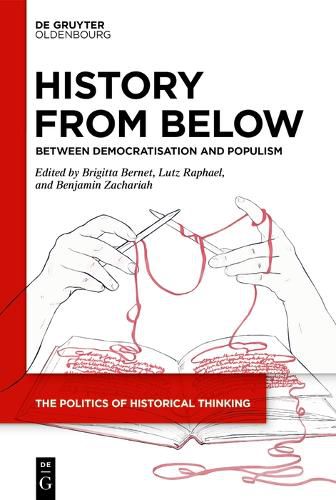Readings Newsletter
Become a Readings Member to make your shopping experience even easier.
Sign in or sign up for free!
You’re not far away from qualifying for FREE standard shipping within Australia
You’ve qualified for FREE standard shipping within Australia
The cart is loading…






What we know as history from below has long been considered a more democratic form of history-writing and research than forms of history that have counted, sometimes by default, as elite, and therefore by implication elitist. But history from below also has a tendency towards populism: an emphasis on authenticity, on voices uncontaminated by elite narratives, and a focus on the indigenous. Apart from its having a long-standing problem of finding sources to 'give voice' to the underrepresented, the question as to who can write about (and therefore represent) the people below, and a possible focus, in consequence, on themes of blood, soil, and the Volk.
This volume explores, over nine essays and an introductory thematic essay, these tensions and dichotomies. The purpose is to bring to the foreground a long-standing danger of celebrating voices from below, perhaps uncritically at times, and therefore also of a romanticisation of those voices.
$9.00 standard shipping within Australia
FREE standard shipping within Australia for orders over $100.00
Express & International shipping calculated at checkout
What we know as history from below has long been considered a more democratic form of history-writing and research than forms of history that have counted, sometimes by default, as elite, and therefore by implication elitist. But history from below also has a tendency towards populism: an emphasis on authenticity, on voices uncontaminated by elite narratives, and a focus on the indigenous. Apart from its having a long-standing problem of finding sources to 'give voice' to the underrepresented, the question as to who can write about (and therefore represent) the people below, and a possible focus, in consequence, on themes of blood, soil, and the Volk.
This volume explores, over nine essays and an introductory thematic essay, these tensions and dichotomies. The purpose is to bring to the foreground a long-standing danger of celebrating voices from below, perhaps uncritically at times, and therefore also of a romanticisation of those voices.